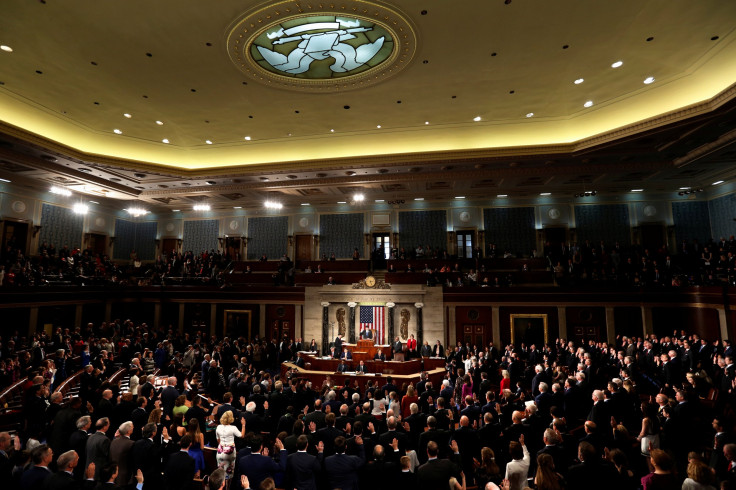Most Followed Religion In The US? Congress Has Almost Same Percentage Of Christians As 87th Congress, Despite Declining Numbers In Overall Population

While lesser and lesser U.S. adults are identifying themselves as Christians in the past few decades, the trend is not reflected in people’s representatives. The 115th Congress has nearly the same percentage of Christians as the 87th Congress (1961 to 1962), which is the earliest for which comparable data is available, research by Pew Research Center showed.
Among members of the 115th Congress, 91 percent described themselves as Christians, not far from the 95 percent Christians in the 87th Congress. From the 293 Republicans who were elected to serve in the new Congress, only two did not identify as Christians — Lee Zeldin of New York and David Kustoff of Tennessee, both of whom are Jewish Republicans.
While being more diverse than the Republicans, almost 80 percent of the Democrats in Congress also referred to themselves as Christians. Of the 242 Democrats, there are 28 Jews, three Buddhists, three Hindus, two Muslims and one Unitarian Universalist. Democratic Representative Kyrsten Sinema of Arizona was the only member of Congress to describe herself as religiously unaffiliated. Also, all 10 members of Congress who did not state their religious affiliation are Democrats.
There has been a drop in the number of Protestants in the Congress, mirroring the trend across the nation, data showed. The total percentage of Protestants in Congress fell from 75 percent in 1961 to 56 percent now. Catholics in Congress increased from 19 percent to 31 percent. In the new Congress, 67 percent of Republicans were Protestant and 27 percent Catholic. For the Democrats, 42 percent were Protestants, while 37 percents identified as Catholics.
The report found that religious groups like the Protestants, Catholics and Jews had a greater representation in Congress than in the general population. Jews, who make up 2 percent of the U.S. population, held 6 percent of the Congress. Buddhists, Mormons, Muslims and Orthodox Christians held roughly the same proportion of the Congress as their share in the population.
There was, however, one group that was grossly underrepresented — the religiously unaffiliated. The religion “none” make up for nearly 23 percent of the U.S. population, the analysis showed, but its adherents hold only 0.2 percent of Congress, with Sinema of Arizona as the only member who described herself as religiously unaffiliated.
The Washington, D.C., nonprofit think tank used data compiled by CQ Roll Call for information on the religious affiliations of members of Congress and compared it with Pew Research Center survey data on the U.S. population.
© Copyright IBTimes 2024. All rights reserved.






















